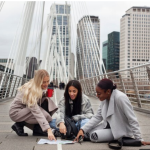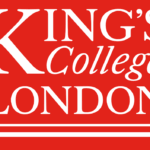In 2015, despite not a Scientific Researcher, but just a voracious and avid reader, Bill Gates predicted the following:
- The world will not face a nuclear catastrophe.
- The greatest risk in a global catastrophe is going to be a viral pandemic.
- We don’t have a system that is set up to deal with a global viral pandemic.
- We will not be ready for the next global viral pandemic.
- We must start to set up the system now.
During his address, people were having a great time, laughing and most probably not taking him very seriously. What Bill Gates did not mention was that we did not have the right leadership across the board to set up the system to deal with the next global viral pandemic.
In his address, Gates also suggested that it will cost at most a few billion dollars to set up the system to deal with the next global viral pandemic. Now, this figure is relatively small compared to the economic life-line package of over 2 trillion dollars the United States government is offering its citizens and businesses. As Bill Gates suggested in 2015, there was no doubt that the next pandemic of viral origin was going to happen. It was a question of how soon will it appear and cause great Chaos and Havoc.
With the level of unpreparedness and lack of transparency from the relevant authorities during this pandemic, can we trust that we are being told the true picture of how things have been and are likely be due to the current global lockdown as a result of the pandemic? Here are some reasons why the economic impact of the Pandemic could be worse than we are told.
The Incompetency at Health Organizations
Around January 23, 2020, World Health Organization’s Director General, Tedros Adhanom Ghebreyesus, with the support of the WHO leadership and that of other National Agencies declared that COVID-19 was not a global health emergency and that there was no need to worry about COVID-19 globally.
Around February 3, 2020, the Director of the WHO stated that “the virus’ spread outside China was minimal and slow“. Only around January 30, 2020, did the US Department of Health and Human Services announce officially that COVID-19 was a Public Health Emergency. It wasn’t until, around March 19, 2020, that the director general declared the Corona Virus Disease a global pandemic.
Presumably, governments across the world, listening to what the governing health agencies were saying, either downplayed or denied the deadly effect of the Corona virus. So they missed the opportunity to contain the virus until it was almost out of control.
Health Vs Economy
During his visit to Nigeria in March 2018, Bill Gates openly and disappointedly criticized the Nigerian government for ‘prioritizing physical capital over human capital”. He faulted the decision to anchor the country’s long-term economic growth on infrastructure. Gate, whose foundation, Bill and Melinda Gates Foundation has committed $1.6 billion to Nigeria, reminded the government that their major focus should be on the education and health of its youth. People without roads, ports and factories can’t flourish. But roads, ports and factories without healthy and skilled people to build and manage them can’t sustain an economy.
Today, malls, theatres, highways, airports and factories are closed down. We have been awakened to the reality of what is more important; health. We don’t have the celebrities, entertainers, sports titans, or military at the frontline of this battle; it’s the doctors, nurses and other health workers. This goes to show that, as misplace our priorities maybe, above everything else, health comes first.
If our leaders and experts could make all these mistakes in handling the crisis from the Corona Virus, can we rely on their expertise to handle the economic effect it will create?
From one misinformation or incomplete information to the other, and we missed out on the opportunity to stop the virus at the gate. The leadership could argue that they were trying to prevent public panic, so held back information. But would you rather be lied to, to prevent you from panicking or would you rather be told the truth to allow you prepare ahead of time for the worst? The same could be playing out in the economic scene across the world as we speak.
The past few years, many experts have predicted an economic recession by 2020. A 2018 article on WorldFinancialReview.com stated that “it appears that there is a foregone conclusion that 2020 is the date that crash 2.0 will wreak havoc once again”. In the same year, JP Morgan warned that “Next global financial crisis will strike in 2020 sparked by an automated trading system.” And Forbes magazine wrote, “2020 might be the worst decade in US history – triggered by contagion from a global credit crisis.” These statements were made 2 years ago. There seemed to be data, statistics and speculations to support this claim. But no one anticipated it would happen the way we are seeing it today.
Could it be that the corona virus pandemic is a catalyst that’ll speed up an economic crisis? Following the social and economic lockdown, IMF, OECD, World Bank and other financial and economic institutions have reported, with certainty, impending economic recession. But could it be worse than is reported?
The Theory of Chaos
At its simplest level, the basic tenets of the “Theory of Chaos” can be summarized as follows: In the scientific world, Chaos which is defined as the State or Degree of Disorder is always increasing if there is no intervention. However, the engendered Chaos or Degree of Disorder is not the product of randomness but are predictable, can be studied up to a certain point prior to the state of Final Chaos when it is very difficult or virtually impossible to predict any outcome.
For example, as in the case of current COVID-19 pandemic, all the confusions, mishaps, mistakes, infections, deaths, including the inefficiency, non-professionalism and inaptitude of the leaderships, which we are now witnessing, are not the product of randomness but were predictable. Instead, they were overlooked or ignored.
Thankfully, the lockdown and social distancing were the higher price we had to pay as an intervention. But this comes at the cost of the economy. And since our ability to get the economy back to work is tied to defeating the virus, the damage on the economy will continue to increase. This is why governments are coming up with economic interventions in form of stimulus to citizens and bail out to businesses. Because allowing events to work out itself will only lead to uncontrollable chaos in the economy. I sincerely pray and hope that we have not reached the point of irreversible unpredictability.
In the current case of COVID-19 pandemic and SARS-COV-2 evolution, we reached the point of near unpredictability because the leaders did not pay attention to small but important details with respect to the evolution of not just infectious viruses but also to the disease patterns that they cause.
The economic situation we face today is not like what we had seen in the past. The 2001 bubble was predictable. 2008 global financial crisis was predictable. But no one could have predicted what we face today. So we may not be able to fix the economic problems of today with the exact solutions of 2008. It’s possible the economy will bounce back faster than we expect once this health battle is won. But it’s also possible it could turn out worse than we anticipate.
What’s for you to do? Keep increasing your value. Keep developing relevant skills. No matter how bad things get, you stand a better chance when you are valuable. And most importantly, stay safe and healthy; because for now, staying alive is more important.
What are your thoughts? Do you think the economic impact of the lockdown and pandemic could be worse? Let’s hear your thoughts in the comment section.









